
The Moody Blues were an English rock band formed in Birmingham in May 1964. The band initially consisted of drummer Graeme Edge, guitarist/vocalist Denny Laine, keyboardist/vocalist Mike Pinder, multi-instrumentalist/vocalist Ray Thomas, and bassist/vocalist Clint Warwick. Originally part of the British beat and R&B scene of the early–mid 1960s, the band came to prominence with the UK No. 1 and US Top 10 single "Go Now" in late 1964/early 1965. Laine and Warwick left the band by the end of 1966, being replaced by guitarist/vocalist Justin Hayward and bassist/vocalist John Lodge. They embraced the psychedelic rock movement of the late 1960s, with their second album, 1967's Days of Future Passed, being a fusion of rock with classical music that established the band as pioneers in the development of art rock and progressive rock. It has been described as a "landmark" and "one of the first successful concept albums".
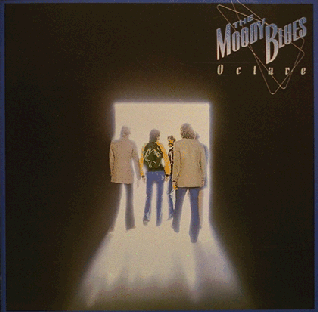
Octave is the ninth album by the Moody Blues, released in 1978, and their first release after a substantial hiatus following the success of the best-selling Seventh Sojourn in 1972. Released after a considerable break, which saw The Moody Blues returning in an era of punk music and disco, Octave produced a reduced commercial outcome for the band, but reached No. 6 in the United Kingdom and went platinum in the United States, where the album reached No. 13. The album produced the hit single "Steppin' in a Slide Zone", which hit No. 39 in the US, in addition to "Driftwood". The album's title is a musical pun: it references both the notion of an octave; and as a word derived from the Latin octavus it refers to this being the eighth album by this line-up of the Moody Blues.
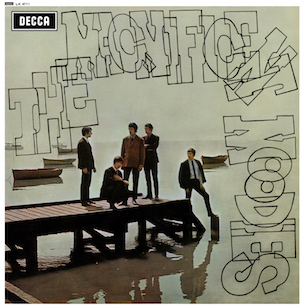
The Magnificent Moodies is the 1965 debut album by British rock band the Moody Blues, released on Decca Records.

Brian Frederick Hines, known professionally as Denny Laine, was an English musician who co-founded two major rock bands: the Moody Blues and Wings. Laine played guitar in the Moody Blues from 1964 to 1966, and he sang their hit cover version of "Go Now". While the Moody Blues were on tour with the Beatles in 1965, Laine befriended Paul McCartney, who later asked him to join his band Wings.

Raymond Thomas was an English musician, singer and songwriter. He was best known as a founding member of the English progressive rock band the Moody Blues. His flute solo on the band's 1967 hit single "Nights in White Satin" is regarded as one of progressive rock's defining moments. In 2018, he was posthumously inducted into the Rock and Roll Hall of Fame as a member of the Moody Blues.

Graeme Charles Edge was an English musician, songwriter and poet, best known as the co-founder and drummer of the English band the Moody Blues. In addition to his work with the Moody Blues, Edge worked as the bandleader of his own outfit, the Graeme Edge Band. He contributed his talents to a variety of other projects throughout his career. In 2018, Edge was inducted into the Rock and Roll Hall of Fame as a member of the Moody Blues.
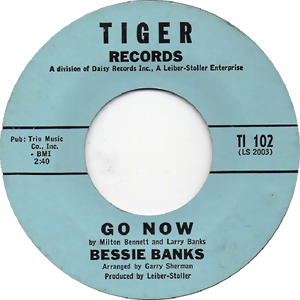
"Go Now" is a song composed by Larry Banks and Milton Bennett and first recorded by Bessie Banks, released as a single in January 1964. The best-known version was recorded by the Moody Blues and released the same year.

Japanese Tears is the third album by guitarist Denny Laine, released shortly before the demise of Paul McCartney's band Wings, of which Laine was a member. The album was released in 1980.
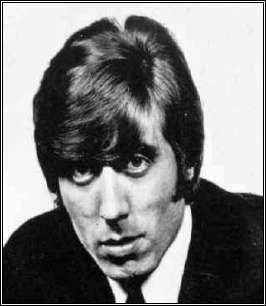
Clint Warwick was an English rock musician and the original bassist for the rock band the Moody Blues.
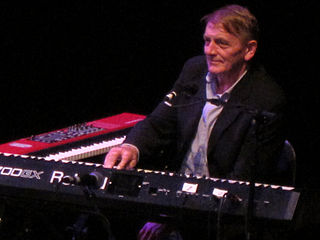
Geraint Meurig Vaughan Watkins is a Welsh singer, songwriter, rock and roll pianist and accordionist. He has backed many notable artists, including Nick Lowe, Dave Edmunds, Van Morrison, Mark Knopfler, Paul McCartney, Roy St. John, Shakin' Stevens and most recently Status Quo. He has also pursued a solo career and issued a number of albums under his own name, the most recent of which, Rush of Blood, was released in September 2019.
"Legend of a Mind" is a song by the British progressive rock band the Moody Blues, and was written by the band's flautist Ray Thomas, who provides the lead vocals. "Legend of a Mind" was recorded in January 1968 and was first released on the Moody Blues' album In Search of the Lost Chord. Prominently featuring the Mellotron, it was the first song recorded for the album.
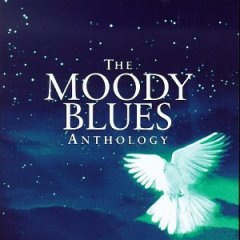
Anthology is a compilation album by the progressive rock band the Moody Blues. It was released in the US on 20 October 1998. It was not released in the UK until 2001 under the title The Collection with different artwork but with the same tracks as the US release.

Greatest Hits is a compilation album by the progressive rock band the Moody Blues, released in 1989. The band recorded new versions of "Isn't Life Strange" and "Question" with orchestration by the London Symphony Orchestra. The arrangements were overseen by Anne Dudley, who also produced the recordings with Justin Hayward and John Lodge. In 1990, only a year after its original release, the album was re-released as Legend of a Band: The Story of the Moody Blues with different artwork to coincide with the release of the home video documentary of the same name.
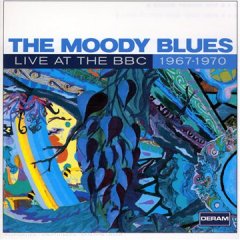
Live at the BBC: 1967–1970 is a two-disc album by The Moody Blues. Released in 2007, it features forty-one live recordings of various performances for the BBC between 1967 and 1970. The album features multiple recordings of some songs, so they are listed more than once. In 2019 the album was reissued on a numbered limited edition triple-coloured vinyl disk set.
"The Best Way to Travel" is a 1968 song by the progressive rock band the Moody Blues. Written by keyboardist Mike Pinder, it was released on the album In Search of the Lost Chord. A wide stereo panning effect, made by the pan pots on the Decca Studios custom-built four-track recording console used during 1967–68, is noticeable on this track.

The Woodstock Experience is a box consisting of a set of studio albums and live performances from the 1969 Woodstock Festival by the artists Santana, Janis Joplin, Sly and the Family Stone, Jefferson Airplane, and Johnny Winter. Each set consists of the 1969 studio album by the artist as well as each artist's entire Woodstock performance. The set was released as both a box containing all five artists, and also as individual releases separated by artist, each containing the studio album and live performance of that artist.

Michael Thomas Pinder was an English rock musician. He was a founding member and the original keyboard player of the rock group the Moody Blues. He left the group following the recording of the band's ninth album Octave in 1978. Pinder was renowned for his technological contributions to rock music, most notably in the development and emergence of the Mellotron in 1960s rock music. In 2018, he was inducted into the Rock and Roll Hall of Fame as a member of the Moody Blues. He was the last surviving member of the group's original lineup.

Days of Future Passed Live is a live album by The Moody Blues that consists of their live performance at the Sony Centre for the Performing Arts in Toronto in 2017. The album was released on 23 March 2018.
















